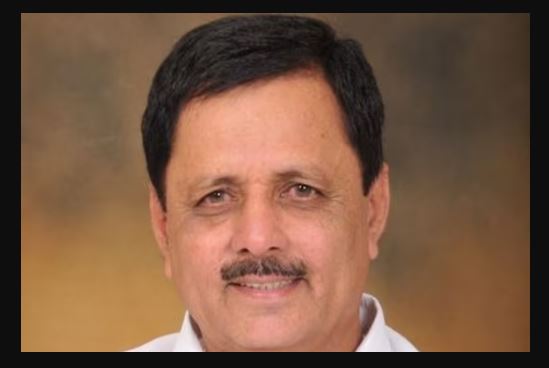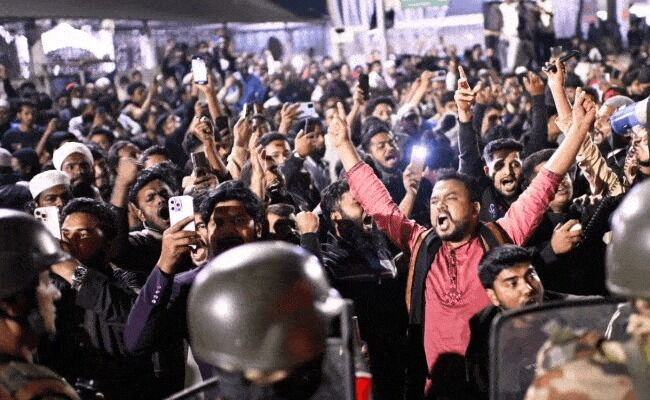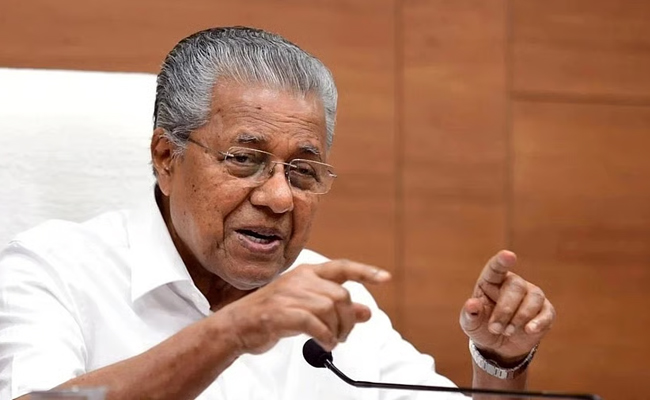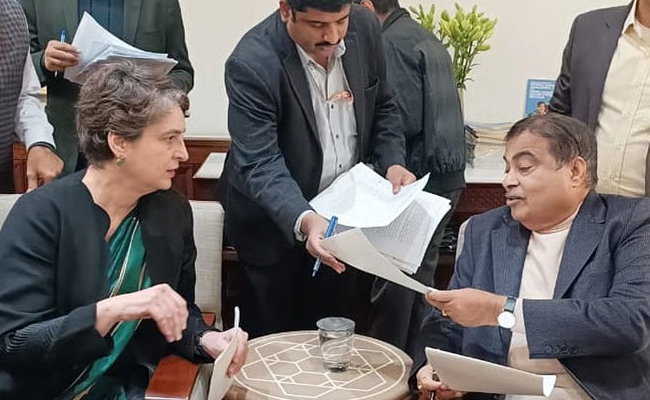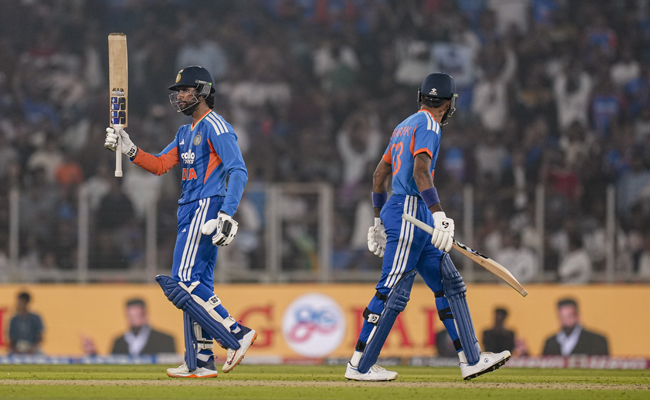Bengaluru, Mar 27: The Lokayukta police arrested BJP MLA Madal Virupakshappa hours after the Karnataka High Court dismissed his bail petition in a bribery case relating to Karnataka Soaps and Detergents Limited (KSDL) on Monday.
The Channagiri MLA had got bail days after his son Prashant M V, who was caught while receiving a bribe of Rs 40 lakh from a contractor on March 2.
Subsequent raids led to the detection of unaccounted cash of Rs 8.23 crore from Virupakshappa's house, sources said.
"We arrested him in Tumakuru when he (the MLA) was on the way to Bengaluru," Lokayukta Inspector General of Police A Subramanyeshwara Rao told PTI.
The High Court had reserved its judgment in the matter last week. The case pertains to the alleged demand and receipt of bribes for allotting contract for supplying chemicals to the state-run company. Subsequent raids by the Lokayukta unearthed cash to the tune of Rs 8.23 crore.
Justice K Natarajan rejected the anticipatory bail plea of the Channagiri MLA.
Virupakshappa, who was the chairman of KSDL, has been charged with demanding bribe through his son Prashanth Madal, a KAS officer.
A demand for Rs 81 lakh bribe to pass a bill was made and his son was caught in his office while accepting Rs 40 lakh out of it.
Later, over Rs 7 crore in cash was seized from Virupakshappa's residence.
Prashanth has already been arrested in the case on March 2. Four more arrests have been made by the Lokayukta police in the case since then.
The BJP MLA has since resigned as the chairman of KSDL.
Virupakshappa is the prime accused in the case. The HC had earlier granted interim anticipatory bail to the MLA on a Rs five lakh personal bond which helped him escape arrest.
Virupakshappa faces charges under Section 7(A) and 7(B) of the Prevention of Corruption Act. While Prashanth is the second accused in the case, Siddesh, Nicholas and Gangadhar are the other accused.
Let the Truth be known. If you read VB and like VB, please be a VB Supporter and Help us deliver the Truth to one and all.
Dhaka (PTI): Bangladesh interim government on Friday urged citizens to resist violence by “a few fringe elements” as the body of a prominent July Uprising leader, who died in Singapore six days after he was shot, reached the capital.
Various parts of the country were rocked Thursday night by attacks and vandalism, including stone-hurling at the Assistant Indian High Commissioner's residence in Chattogram, after Chief Adviser Muhammad Yunus confirmed Sharif Osman Hadi's death in a televised address to the nation.
There were, however, no reports of fresh violence since Friday morning.
Hadi, one of the leaders who had taken part in the student-led protests last year – termed as July Uprising - and a candidate for the scheduled February 12 general elections, died while undergoing treatment at a Singapore hospital six days after he was shot by unidentified men.
Body of Hadi, who was the spokesperson of the Inqilab Mancha, arrived at Hazrat Shahjalal International Airport (HSIA) at around 6 pm on a Biman Bangladesh Airlines flight, amid tight security and widespread public mourning, state-run news agency Bangladesh Sangbad Sangstha (BSS) said quoting Biman General Manager (Public Relations) Boshra Islam.
Members of the Bangladesh Army, Armed Forces Battalion (AFB) and police were deployed in large numbers to maintain security when Hadi's body was taken out of the airport, it added.
Hadi's passing away at the Singapore General Hospital triggered widespread mourning across political circles, activists of Inqilab Mancha and the general public, BSS said.
Yunus has declared a one-day state mourning on Saturday following Hadi's death.
Earlier on Thursday, soon after Yunus' announcement, protesters took to the streets and attacked offices of leading newspapers, vandalised 32 Dhanmandi with hammers, and also demolished an office of deposed prime minister Sheikh Hasina's disbanded Awami League party in Rajshahi city.
Regarded as the centre point of Bangladesh’s pre-independence struggle for autonomy for decades, 32 Dhanmandi was largely demolished with excavators on February 5 this year. It was also set on fire soon after the August 5, 2024 fall of the then Awami League government and Hasina fleeing to India.
Protesters also hurled bricks and stones at the residence of the Assistant Indian High Commissioner in Chattogram at 1:30 am, but failed to cause any damage.
Police responded with tear gas and baton charges, dispersing the crowd and detaining 12 protesters. A few injuries were also reported.
Senior officials assured the assistant high commissioner of enhanced security.
In Dhaka, protesters attacked the office of a leading cultural group, Chhayanaut, and brought out the furniture, setting it on fire.
Sporadic violence was also reported from other parts of the country overnight.
Meanwhile, after the flight from Singapore landed in Dhaka, local media reports and videos shared on social media showed Hadi's followers lining up on both sides of the road from the airport to Shahbagh to receive him before his coffin was brought to the Dhaka University Central Mosque for a public meeting.
In a Facebook post, Inqilab Mancha announced that a janaza will be held in Bangladesh on Saturday after Zuhr prayers (afternoon) at Manik Mia Avenue in the capital.
Hadi was shot in the head last week by masked gunmen as he initiated his election campaign at central Dhaka’s Bijoynagar area. He died while undergoing treatment at a Singapore hospital after fighting for his life for six days.
On Thursday night, the National Citizen Party (NCP), a large offshoot of Students Against Discrimination (SAD) that led the July Uprising, which ousted the Hasina-led government, joined a mourning procession on the Dhaka University campus.
Supporters of the group chanted anti-India slogans alleging that Hadi’s assailants fled to India after committing the murder. They called upon the interim government to close the Indian high commission until they were returned.
“The interim government, until India returns assassins of Hadi Bhai, the Indian High Commission to Bangladesh will remain closed. Now or Never. We are in a war!” said Sarjis Alm, a key leader of NCP.
Starting Thursday through night, a group of people, believed to be part of the protesters, also attacked the offices of Bangla newspaper Prothom Alo’s office and the nearby Daily Star at the capital's Karwan Bazar, near the Shahbagh intersection.
Reports said they vandalised several floors while journalists and staff of the newspaper were trapped inside, and the mob ignited a fire in front of the building.
Critically ill former prime minister Khaleda Zia's Bangladesh Nationalist Party (BNP) strongly condemned the vandalism and said that the Yunus-led interim government will have to shoulder its responsibility.
In his address on Thursday, Yunus vowed to bring those involved in Hadi's brutal murder to justice quickly, saying, “No leniency will be shown” to the killers.
“I sincerely call upon all citizens – keep your patience and restraint,” he said.
“No one can stop the democratic progress of this country through threat, terrorist activities or bloodshed,” he said, adding that the responsibility of realising Hadi's dream lies on the shoulders of the entire.

